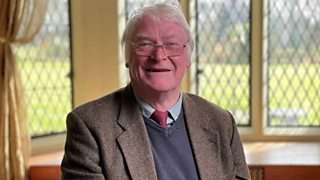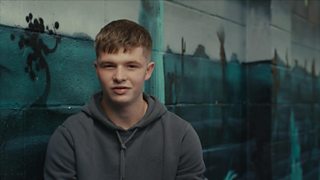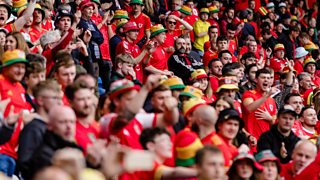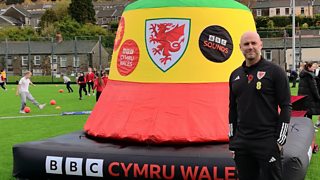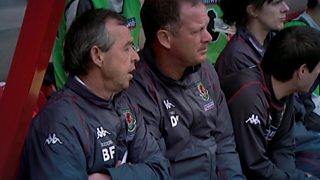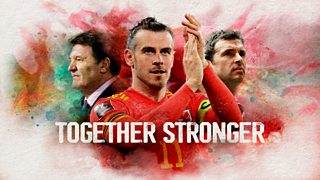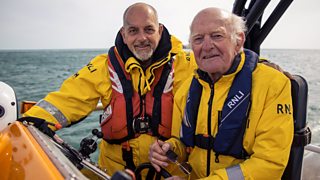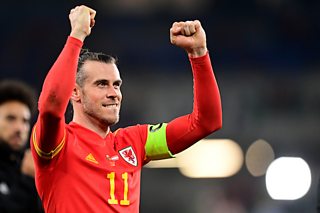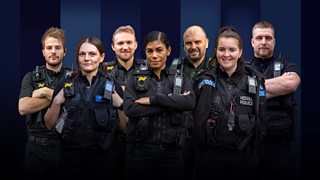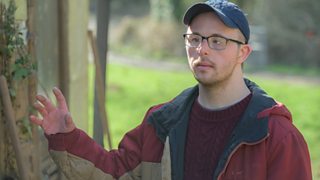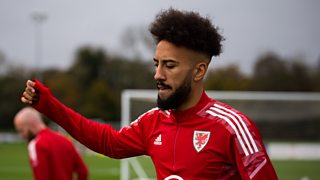The Crash Detectives
26 October 2021
When serious or fatal incidents happen on the roads, specialist forensic collision investigators are called in.
As the painstaking hunt for evidence gets under way, all eyes are on them to find the answers.
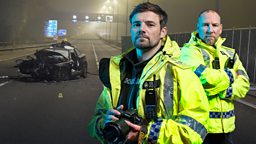
Sergeant Bob Witherall heads up the unit for the Gwent Police force area, and says they are the ‘crime-scene investigators of the road’.
When the road is closed for eight hours people should be asking ‘How can you do your job so quickly?’ as opposed to ‘Why is it closed for so long?’
The small team must deal with over 100 calls a year, which requires immense dedication.
“You need to be tenacious, resilient, determined, committed and able to think outside of the box.” says Bob.
“You need to have attention to detail, but you also have to love this job to do it.”
The work certainly has its pressures.
“Every road death should be treated as a murder scene. The difference being that we've got the skill to deal with it in relatively a short time frame.
“If you had a murder in a house, that house could be sealed off for weeks, whereas if someone dies on a motorway the pressure's on us to get that motorway open.
“We've got responsibility over and above anything else to the families to find out what happened.
“So actually, when the road is closed for eight hours people should be asking ‘how can you do your job so quickly?’ as opposed to ‘why is it closed for so long?’
“We only get one shot at it, so once that road is reopened we've lost the opportunity.”
And it doesn’t end there.
“It's not just about collecting the evidence on that day, it's about the months of investigation that follows; the two years that follow sometimes,” says Bob.
The officers are highly qualified in both maths and physics, and can work out speeds, and interpret the evidence to build an accurate picture of exactly how the crash happened.
If necessary, their findings can be dealt with by a coroner – or often lead to criminal charges.
Bob says: “Then it's the pressure of having to stand in court and give your expert evidence based on all the evidence you gathered within that eight to 10-hour time frame.”
While the team work shifts, they’re also on call. The dedication to their jobs is not without some personal sacrifice.
Every scene should be treated as a murder scene
“We’ve missed holidays with our kids, missed school holidays and we miss special occasions. There have been times, like on Christmas Day once, where I was called out whilst eating my Christmas dinner with my family, to go to the scene of a fatal collision” says Bob.
“And I’ve had to explain to my sons that at that point, someone else’s family needed me more.”
The difficult scenes faced by the officers are frequently ones of great tragedy.
On that rainy Christmas Day in 2015, Bob was called to a single-vehicle crash involving a motorcyclist on the M4 motorway. It became the case that now stands out in his career.
The man who had died was a husband, and a father of two daughters. His devastated family had been waiting for him to ride back from work and join them for Christmas dinner.
He never made it home.
As Bob hunted for the evidence from the scene, his overwhelming thought was that something about this collision didn’t ‘feel right’. It made no sense that the biker would lose control for no reason.
His instinct was right. There was another car involved, and it was tracked down, but the driver denied any wrongdoing.
All hopes then rested with a tiny paint sample, which Bob had spotted on the foot peg of the motorbike. Scientific analysis finally proved that it had made contact with the wheel of his car.
The driver was found guilty of causing death by dangerous driving and was sent to prison for seven years.
While professionalism is key to getting justice for victims, the human cost of what they deal with is also unavoidable.
But it’s also their motivation.
“You put the uniform on, you live in this bubble of being a collision investigator and you go out and do a job,” says Bob.
“But that's not to say that when you left that scene and you have five minutes to yourself, and you start thinking about reflecting on what you've seen, the families who’ve lost a loved one.
“I've been in that position. I lost a good friend in a road traffic collision when I was in my teens, so I've lived on the other side of it.
“I can empathise with people as I know the pain and the anguish that causes. So that drives me as well.”
Bob and his team are the focus of The Crash Detectives television series which takes viewers inside the cordon at crash scenes and follows every twist and turn of the investigation as it unfolds.
“When we started out on the Crash Detectives journey it was about raising the public's awareness about what we do, and how much investigation goes into these types of incidents - but also that all these incidents are preventable in some way. All of them.
“So for us, it's also about the road safety aspect of it. It's about educating people to look after your vehicle, drive carefully, don't drink, don't take drugs, don't use your phone, wear your seat belt.
“If we've saved one life or saved someone from significant injury, just by doing what's been done then we've achieved our aim.”

